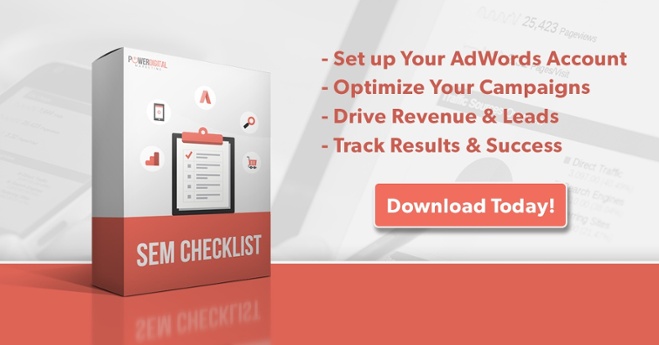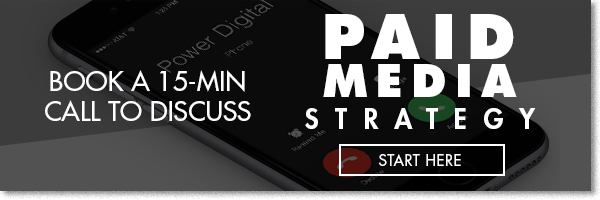Benefits of Programmatic Advertising

Programmatic Advertising. Are you familiar? Maybe you’re in the know, maybe you’ve just heard about it. For those that aren’t directly involved with Programmatic, it can seem like a part of digital marketing that’s a bit of a mystery. It’s not the display advertising that we’ve gotten used to on the Google Display Network. It’s not PPC. It’s kind of similar to Facebook advertising… so what is it?
In a nutshell, Programmatic is AI (yes, Artificial Intelligence. The future is here people) driven display advertising that dynamically places ads on the right websites in front of the right people at the right time. Programmatic advertisers have access to a ton of data sourced from companies like Oracle to combine purchase data, online activity, demographic, and even lifestyle choices to intelligently serve ads to exactly who you want to be advertising to. This isn’t 100% perfect, of course, but it’s pretty damn close.
Related: Programmatic Display 101
The Benefits Of Using Programmatic
It’s pretty simple, right? You get to put ads in front of only the most relevant audience. Well.. good news and less-good news. Good news is you’re right, less-good news is that’s where it ends being simple. Programmatic advertising is not a direct response play. Let me say that again: Programmatic advertising is not a direct response play. This is almost always where wires get crossed when it comes to Programmatic. If you don’t set the right expectations, clients can get caught up in the fact that there isn’t direct ROAS (Return On Ad Spend) attributable to the Programmatic campaigns. Worst case scenario is that they feel like you’re purposely keeping them in the dark because performance isn’t where you expected it to be when that’s most definitely not the case. Before you take on any Programmatic task, please set the right expectations for the sake of digital marketers everywhere.
Now that I got that out of the way, what are the benefits besides right ad, right person, right time? Let’s start with an easy one: the network. When advertising on the Google Display Network, you only get to advertise on the Google Display Network (duh). With a Programmatic partner, you get access to the GDN + every other display network. Granted, Google’s network is about 75% of the online display inventory, but an extra 25% is nothing to laugh at. Not to mention that the other networks aren’t quite as strict in terms of what you can advertise as Google. Looking at you, legal marijuana industry.
Another easy benefit to call out is the pure volume of audience choices that you’re given. If you have chance to dive into a Programmatic engine, be sure to take a look at all of the audience segments. We have the obvious ones: demographic, location, and in-market segments, as to be expected. We also have access to past purchase data (thanks for the privacy, Visa and Mastercard), online activity, job title/seniority, income brackets, net worth (up to $5 million+), shopping preferences, and even inferred lifestyle choices based on all of the previously mentioned criteria. You a little creeped out? I’ll be honest, I am. All of this is basically gold for advertisers, though, so it’s here to stay.
Another benefit that could have been included above – but I thought warranted its own section – is the geo-targeting capabilities. With Programmatic, you have access to both Geo-fencing and Geo-framing. With Geo-fencing, you can target a very specific location (down to a small building, if you want) and serve ads to people within your “fence” in real-time. In layman’s term, your ads are only shown to people that are physically in your location of choice in real time. There are a few caveats, like they have to have location services enabled on their phone and have to browsing the internet, but it’s still quite effective.
I prefer Geo-framing, which is basically Geo-framing mixed with retargeting. You set your “frame” up, and the people who physically enter the frame are put into a “retargeting” pool that you can serve ads to for up to 6 months after they entered the frame. This isn’t real-time, but it’s stickier. Used wisely, this could be a very creative way to start building a laser-targeted audience.
The last and best benefit I see with Programmatic is that it gives you a mainline to high-quality high-funnel traffic, which supplements nearly every other digital channel’s success. While your Programmatic ads drive direct clicks through to the site, that’s not the core benefit. Remember, Programmatic advertising is not a direct response play. Display advertising drives searches. It drives interest. If you’re interested in reading more about the science of how programmatic (and display, by extension) ads drive organic searches, Search Engine Land wrote a great article about it covering a Harvard study done a few years ago. The long-short is that there is a direct correlation in an increase in quality search volume about two weeks after display ads start running. The healthier the top of the funnel is, the healthier the rest of the funnel is, and the happier everyone is!
This isn’t an exhaustive list by any means, but I wanted to highlight the main values that Programmatic can bring to nearly every digital campaign. The biggest hurdle I’ve seen so far is getting the client on board with the lack of hard KPIs like ROAS, Revenue, etc. If you don’t handle the conversation right, your client may feel like you’re pulling the wool over their eyes and wasting their money. You need to set the right expectations from the start. All that being said, I think that Programmatic is about to take over as the high-funnel play for any sizable digital campaign. Do as much homework as you can!
Keep an eye out for my upcoming blog post “How Does Programmatic Advertising Work?” If you’re interested in learning more about the technical side of Programmatic.
Special shoutout to our programmatic partner Choozle for their contributions to this article!
Our Editorial Standards
Reviewed for Accuracy
Every piece is fact-checked for precision.
Up-to-Date Research
We reflect the latest trends and insights.
Credible References
Backed by trusted industry sources.
Actionable & Insight-Driven
Strategic takeaways for real results.







